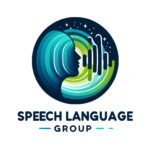Date: 21th of october 2024 at 2PM Place: Thesis room, at the Hannah Arendt campus of Avignon Université. The videoconference link is the following: https://bbb.univ-avignon.fr/rooms/vtj-xje-xex-gyw/join . The jury will be composed of: Dr Aurélie Clodic, LAAS-CNRS, RapporteurePr Julien Pinquier, Université de Toulouse, IRIT, RapporteurPr Laurence Devillers, Sorbonne Université, LISN-CNRS, ExaminatricePr Olivier Alata, Université Jean Monnet, Laboratoire Hubert Curien, ExaminateurPr Fabrice Lefèvre, Avignon Université, LIA, Directeur de thèseDr Bassam Jabaian, Avignon Université, LIA, Co-encadrant Title: Proactive multimodal human-robot interaction in a hospital In this thesis, we focus on creating a proactive multimodal system for the social robot Pepper, designed for a hospital waiting room. To achieve this, we developed a cognitive human-robot interaction architecture, based on a continuous loop of perceptions, representation, and decision-making. The flow of perceptions is divided into two steps: first, retrieving data from the robot’s sensors, and then enriching it through refining modules. A speaker diarization refining module, based on a Bayesian model of fusion of audio and visual perceptions through spatial coincidence, was integrated. To enable proactive action, we designed a model analyzing the users’ availability for interaction in a waiting room. The refined perceptions are then organized and aligned to create a constantly updated representation of Plus d'infos

